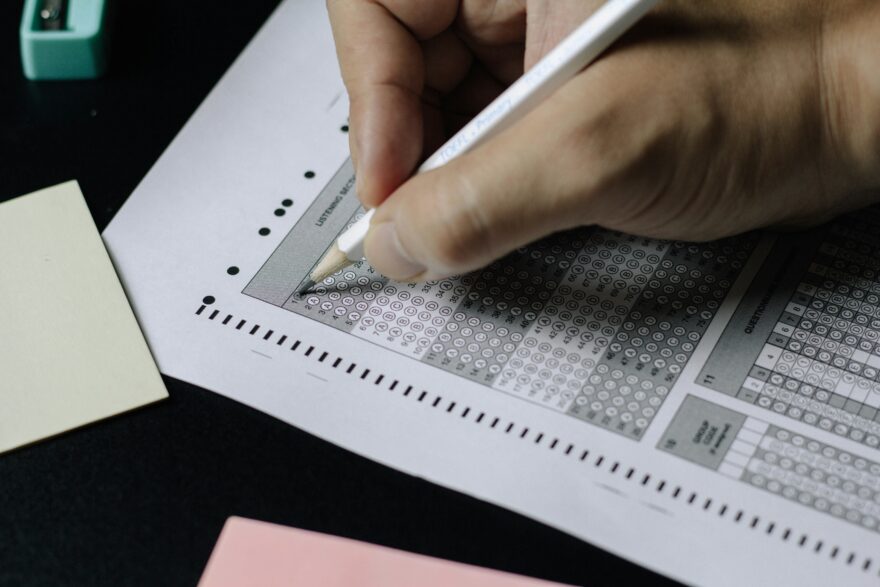
During the Covid-19 pandemic, the massive disruption to high school students’ ability to take standardized tests like the SAT and ACT caused the vast majority of American colleges and universities to waive their requirements for applicants to submit these scores.
As uncertainty persisted, schools continued to extend these policies, some year-by-year, some in multi-year pilot programs to determine whether they ever wanted to ask for the tests again. A few, such as Columbia University, opted to become permanently test-optional, meaning no applicants needed to submit any standardized test scores. MIT, on the other hand, announced two years ago that it believed that SAT/ACT scores were instrumental to predicting high school applicants’ success at their university, and reinstated the requirement .
In recent weeks, there has been a flurry of additional movement. Dartmouth College and Yale University, both Ivy League schools, announced that they would return to requiring test scores from applicants in the Class of 2025, albeit to different extents. Many more top schools are likely to make long-term decisions in the coming weeks, as this application cycle winds to a close, and they can evaluate the results of their multi-year experiments into test optional admissions.
Although some universities will remain test-optional permanently or through previously-announced pilot programs, there now appears a good chance that some colleges and universities will decide that they do in fact need standardized test scores to make the best admissions decisions for their school, and that more of these requirements will return.
Well, right now it’s hard to know anything concrete, but although the situation is rapidly evolving, we have some preliminary ideas and predictions.
Every student’s college admissions strategy is different, which means that every student’s approach to standardized testing is different, too. There are still many more test-optional colleges and universities out there, more than before the Covid pandemic; Amherst College, for instance, announced last spring that it would be keeping its test-optional policy. So students who do not want to take the SAT or ACT will still have plenty of options.
For students who are likely or planning to apply to schools where standardized test scores will be required, though, it will be important for them to keep in mind that these colleges will still expect to see high scores. There is a misconception right now that colleges’ standardized testing data is artificially inflated thanks to years of test-optional policies. While it is true that the low end of the range of accepted scores rose, as special cases like legacies and recruits did not submit scores, the target benchmark scores for typical students has not risen.
That means that students aiming for top schools where SAT or ACT scores will now again be required still need to meet high goal scores to be competitive applicants for admission. The only real difference now is that they will not have a choice about whether to submit scores to schools like Dartmouth College and MIT, if they decide to apply to those schools.
Other things to keep in mind are the shift to the digital SAT and the brand new digital option for the ACT, both of which offer alternative pathways to taking these standardized tests and that some students may find more inclusive of their abilities and strengths. Right now, most colleges are planning to treat the digital and paper tests interchangeably and express no preference between them.
Finally, there may also be an increase in text-flexible policies; Yale’s new policy, for instance, does not require the SAT or ACT if students can put forward AP, IB, or similar scores. It’s anyone’s guess whether more colleges will avail themselves of this in-between option, but the fact that Yale has done it will certainly spur others to at least consider it.
The rapidly changing landscape of standardized testing has been a major source of uncertainty and stress for students in recent weeks, but it is not likely to slow down any time soon. Over the next few weeks, as this admissions cycle runs its course and colleges make their decisions about next year’s testing policies, we’re likely to see a flood of announcements.
Still, although we do not yet know exactly what the eventual breakdown of test-optional policies will be for the Class of 2025, we at Spark are following these developments extremely carefully! Please watch this space for more updates soon, and if you want to speak to one of our counselors about how changing testing policies will affect your college admissions process, schedule a free consultation here.
Contact us to learn more about our admissions consulting services.